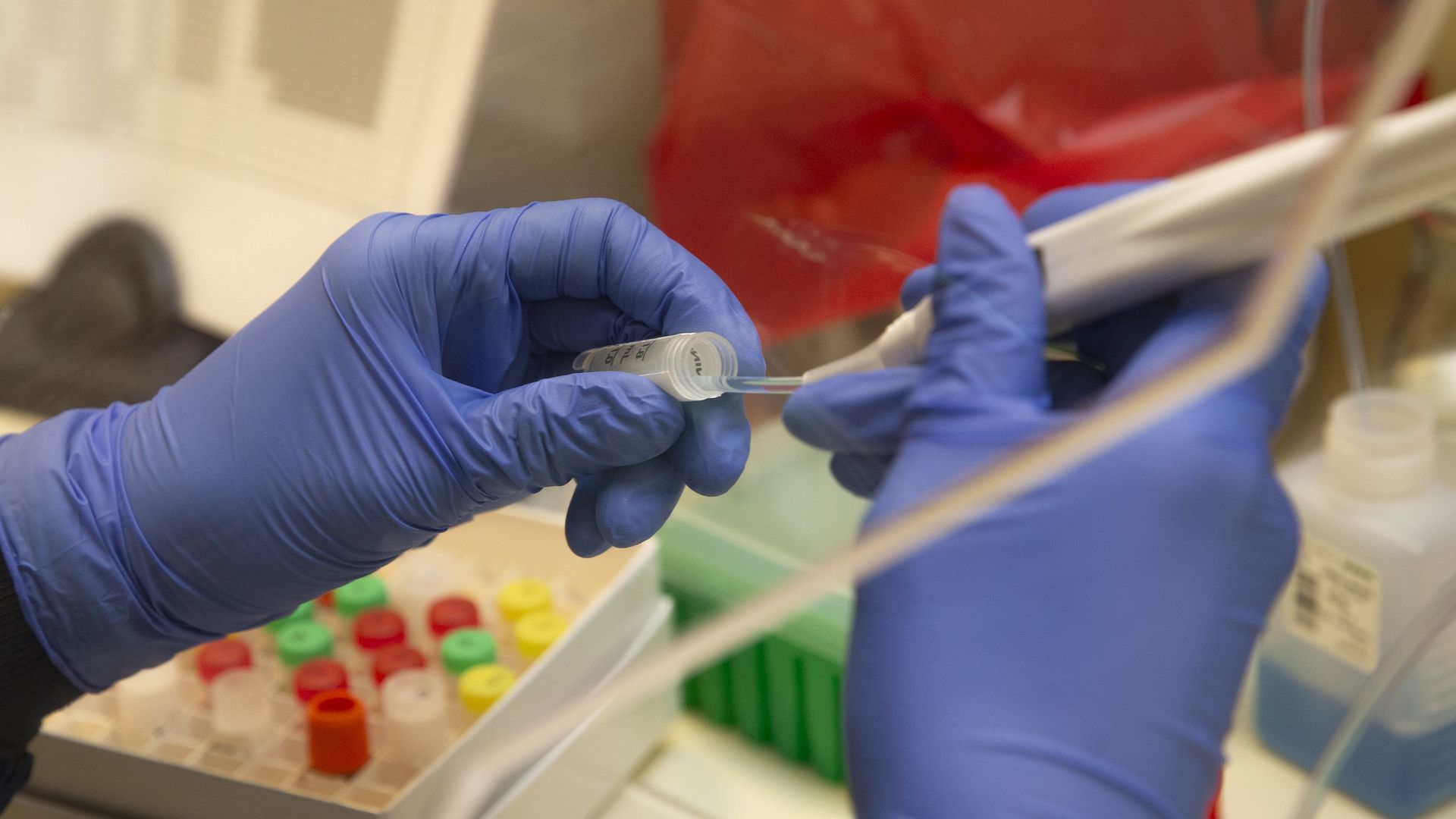Apr 20, 2020 - Health
Coronavirus antibody tests see reliability and availability problems
Add Axios as your preferred source to
see more of our stories on Google.

A medical researcher testing for antibodies against coronavirus. Photo: Karen Ducey/Getty Images
